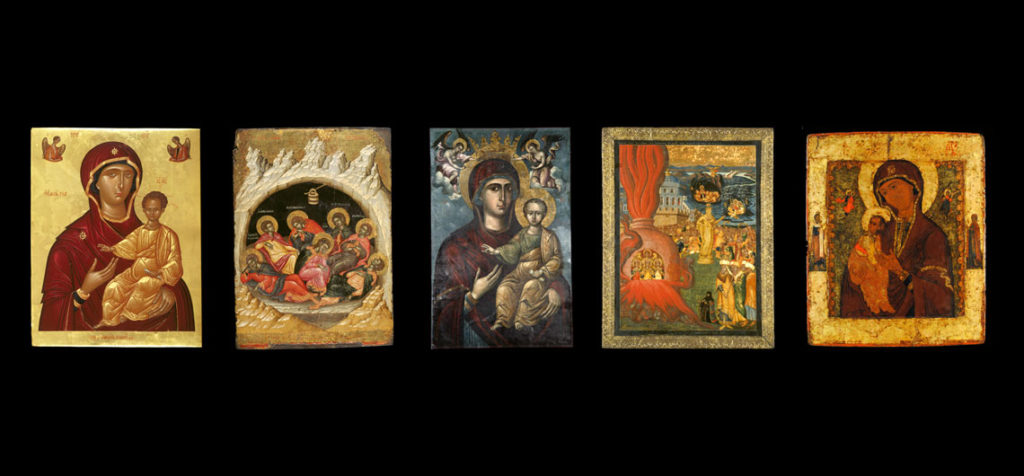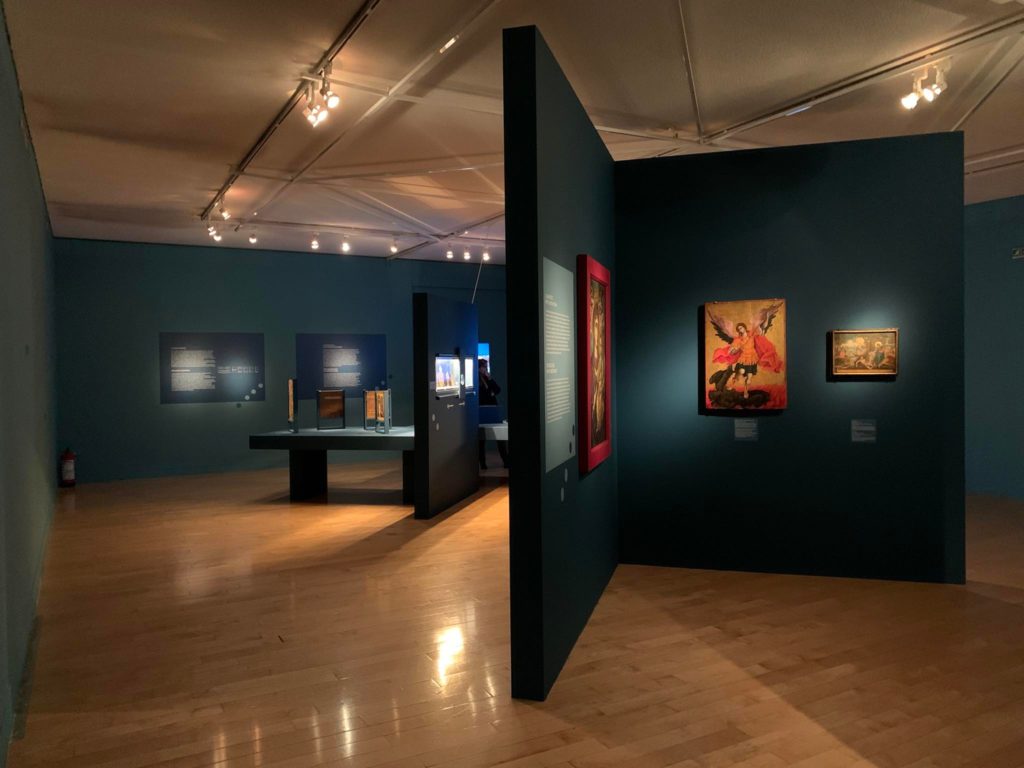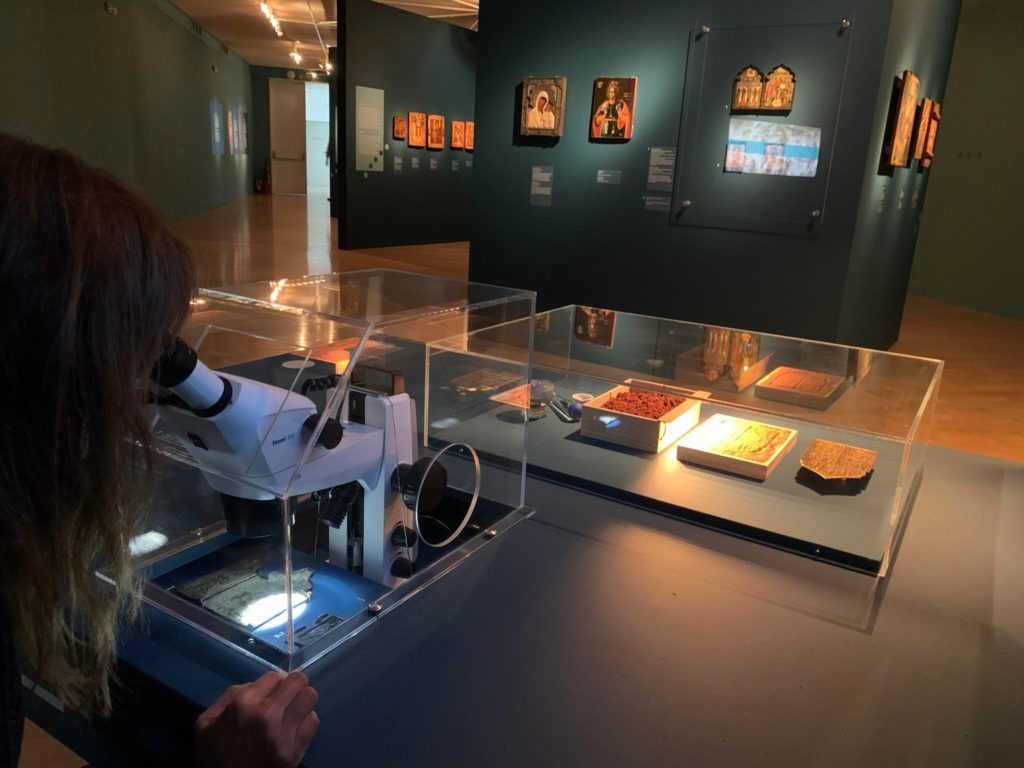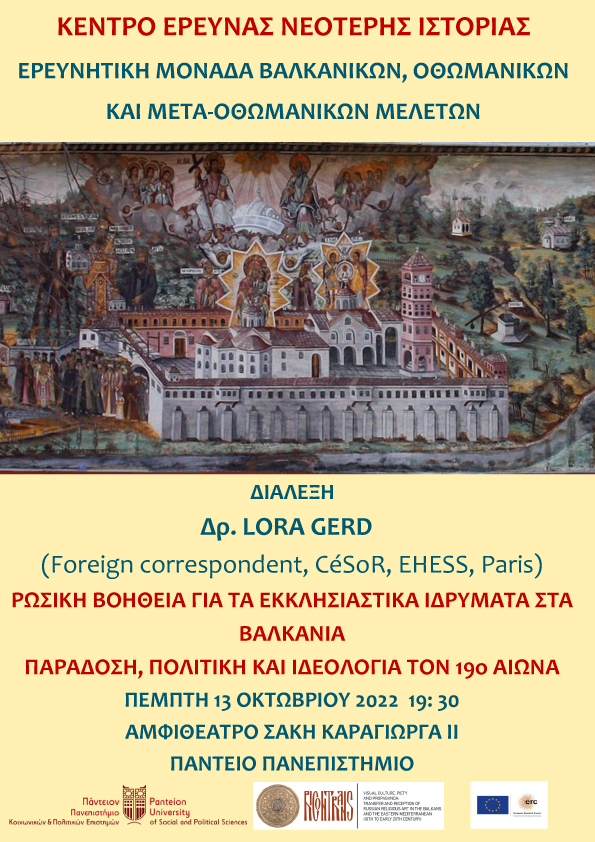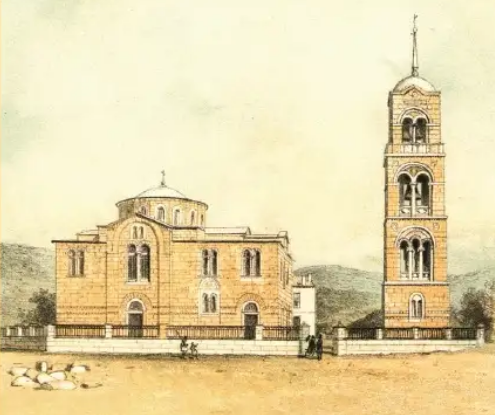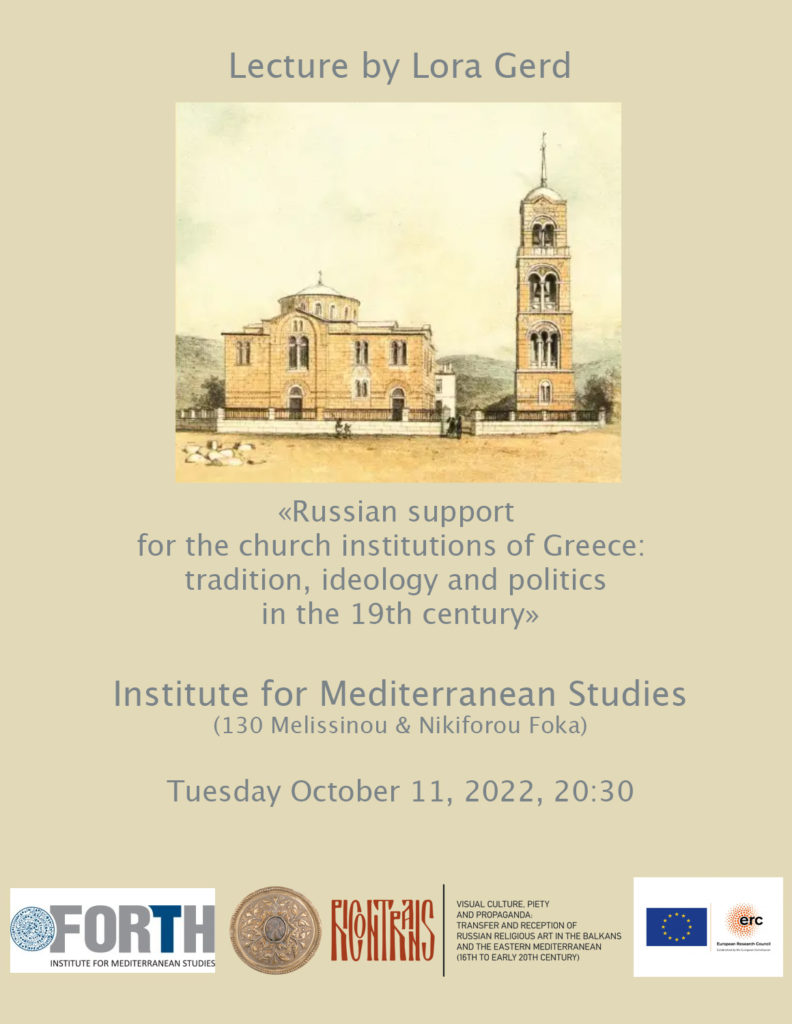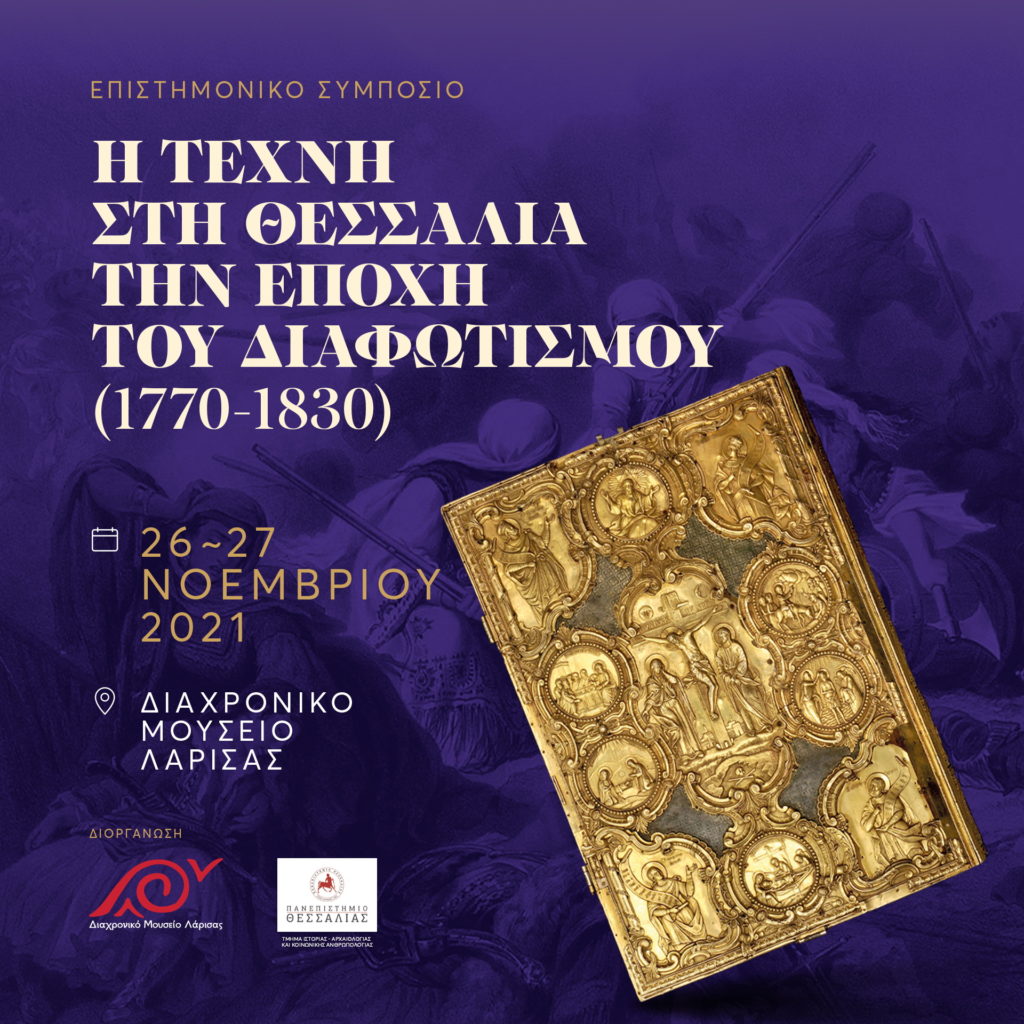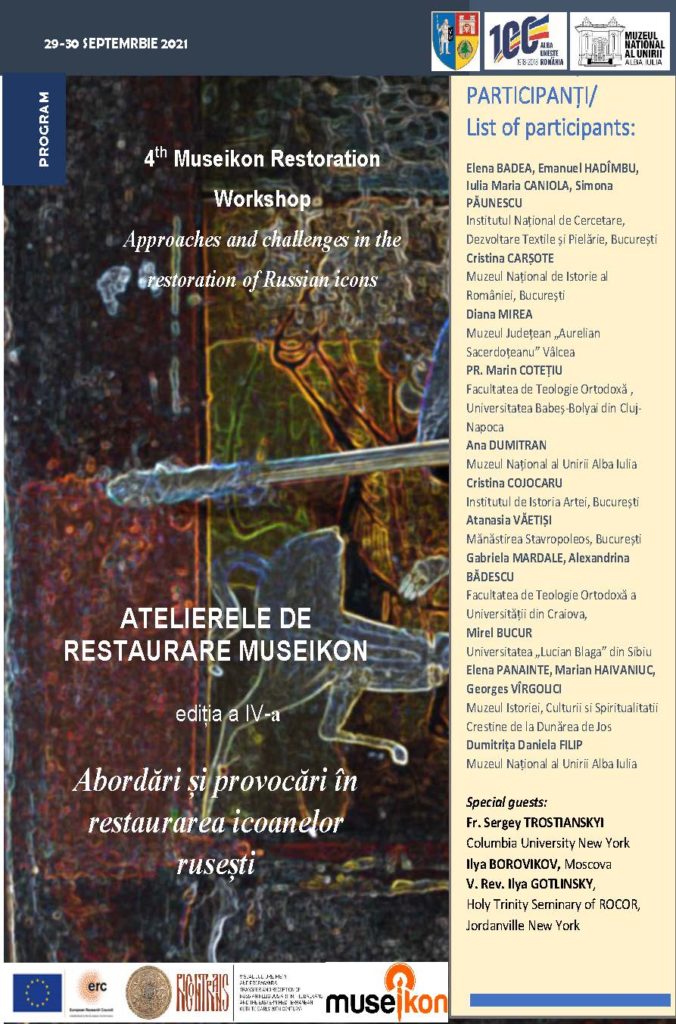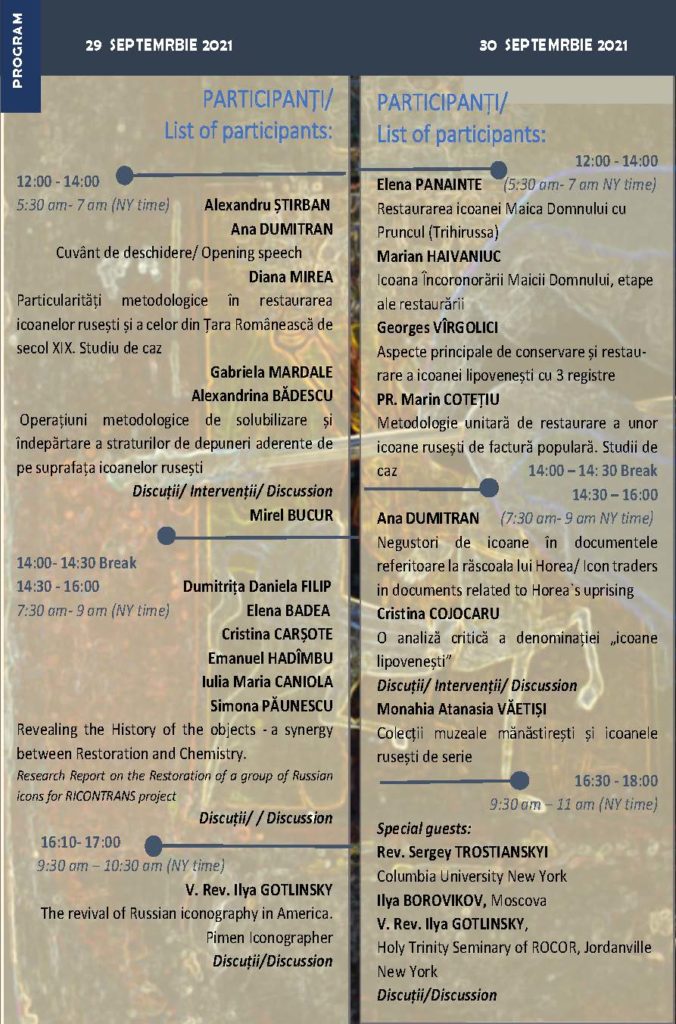RICONTRANS International Graduate Student Conference
Entangled paths: Greek and Russian icons in the Balkans (16th – 19th c.)
Location: BENAKI MUSEUM OF GREEK CULTURE, Athens, 1-2 June, 2022
The RICONTRANS International Graduate Student Conference took place at the Benaki Museum of Greek Culture, in Athens, during June 1-2, 2022
PROGRAM
WEDNESDAY, June 1, 2022
10:00-11:45
ARTISTS AND WORKSHOPS
Chair: Yuliana Boycheva
Teodora Bradić, Faculty of Philosophy, University of Belgrade
The education of Serbian icon painters in Russia
Simeon Tonchev, Institute of Art Studies, Bulgarian Academy of Sciences
Russian Influences in the works of the Bulgarian artist Stanislav Dospevsky
Alkis Pantopoulos, Department of History and Archaeology, National and Kapodistrian University of Athens
Reflections of everyday life in icon painters’ working drawings: examples from the Hatzidakis portfolio at the Benaki Museum
Greta Baka, Department of History and Archaeology, National and Kapodistrian University of Athens
The depiction of saints in the working drawings of icon painters (anthivola) from the Hatzidakis portfolio at the Benaki Museum
Discussion
11:45-12:00 break
12:00-13:30
HOLY SPACE IN ART- ART IN HOLY SPACES
Chair: Anastasia Drandaki
Vasilis Chrysanthopoulos, Department of History and Archaeology, National and Kapodistrian University of Athens
Perceptions of space in Greek and Russian icons (15th-17th century)
Manos Tsikourakis, Department of History and Archaeology, National and Kapodistrian University of Athens
Shaping the sacred space of an orthodox pilgrimage site: Greek and Russian religious art from the 16th to 18th centuries at the Monastery of Mt Sinai
Marija Lakić, Faculty of Philosophy, University of Belgrade
Russian saints on the iconostasis in the Cathedral Church of the Nativity of Theotokos in Sarajevo
Discussion
13:30-14:30 pause
14:30-16:00
ART AND POLITICS IN THE BALKANS
Chair: Daria Resh
Nikolas Petsitis, Department of History and Archaeology, National and Kapodistrian University of Athens
The gifts of Arsenios of Elasson (1550-1626): The political connotations of his donations to orthodox centres
Elisavet Margeti, Department of Political Science and History, Panteion University – Institute for Mediterranean Studies (FORTH)
The image of the Balkans in 19th century Russian literature: orthodoxy, art and political influence
Teodora Andjelković, Faculty of Philosophy, University of Belgrade
Wars and visual culture: Russian volunteers in Serbian-Turkish Wars (1876–1878)
Discussion
THURSDAY, June 2, 2022
10:00-11:45
RUSSIAN ICONS IN THE BENAKI MUSEUM
Chair: Alexandra Kalliga
Panagiota Diamatari, Department of History and Archaeology, National and Kapodistrian University of Athens
Russian travelling triptychs: iconography, typology and use with examples from the Benaki Museum collection
Paraskevi Mavridi, Department of History and Archaeology, National and Kapodistrian University of Athens
Representations of the Virgin in Russian icons from the Benaki Museum collection
Amalia Mpoura, Department of Conservation of Antiquities and Works of Art, University of Western Attica
Study on the gilding techniques and materials of Russian icons in the Benaki Museum
Anastasiya Pidchashynska, Department of Conservation of Antiquities and Works of Art, University of Western Attica
Physicochemical diagnosis and documentation of materials and technology of construction of Russian icons from the Benaki Museum collection
Discussion
11:45-12:00 break
12:00-13:30
HANDS-ON STUDY OF ICONS FROM THE BENAKI MUSEUM COLLECTION
13:30-14:30 Pause
14:30-16:00
THE RUSSIAN PRESENCE IN THE AEGEAN
Chair: Mara Verykokou
Aspa Chalkiadaki, Department of History and Archaeology, University of Crete – Institute for Mediterranean Studies (FORTH)
The Russian fleet into the Aegean Sea. A naval expedition “vested” with ideology and religious propaganda
Eirini Touloupi, Department of History and Archaeology, University of Crete – Institute for Mediterranean Studies (FORTH)
Aspects of the Russian presence in Naxos through the objects of ecclesiastical art kept on the island
Kyriaki Prasinou, Department of History and Archaeology, National and Kapodistrian University of Athens
Russian religious art in the Cyclades: examples from the island of Santorini
Discussion
16:00-16:30
Closing Remarks: Yuliana Boycheva and Anastasia Drandaki
Friday, June 3, 2022
Study Day at the Kanellopoulos Museum
